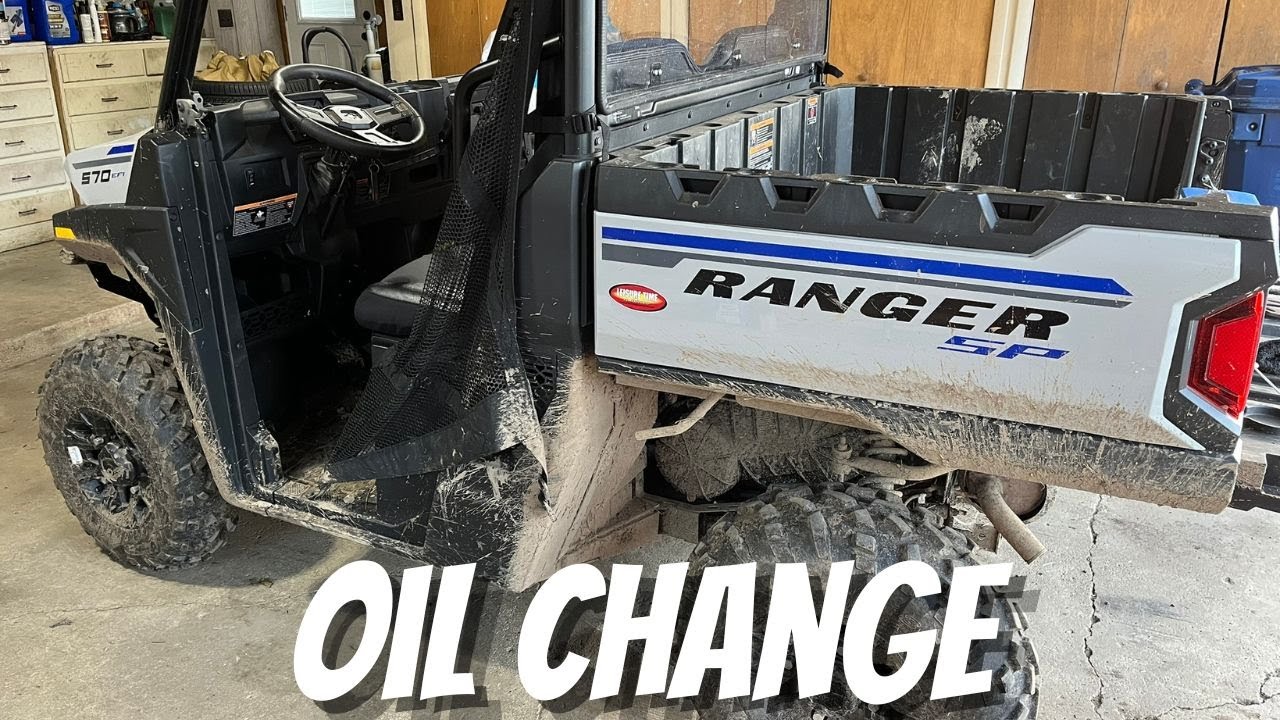What Kind Of Oil Does A Polaris Ranger Take

Choosing the right oil for your Polaris Ranger isn't just a matter of convenience; it's a critical decision that directly impacts the longevity, performance, and reliability of your machine. Unlike your average passenger car, a Ranger operates in demanding conditions – from hauling heavy loads across rugged terrain to enduring extreme temperatures. Therefore, understanding the specific lubrication requirements is paramount.
Understanding Polaris Oil Specifications
Polaris, like most manufacturers, specifies particular oil types and viscosities for their vehicles. Deviating from these recommendations can lead to premature engine wear, reduced performance, and even voided warranties. The primary oil recommendation for most Polaris Ranger models centers around their proprietary Polaris PS-4 or PS-4 Extreme Duty oil.
PS-4 is a 5W-50 full synthetic oil formulated specifically for Polaris engines. This viscosity grade is crucial. The "5W" indicates its cold-start performance; in cold weather, it flows relatively easily to lubricate critical engine components. The "50" represents its viscosity at operating temperature, meaning it maintains a robust film strength to protect against wear under high stress. This is particularly important in Rangers that are frequently used for towing, hauling, or aggressive off-roading.
PS-4 Extreme Duty is designed for even more demanding applications. This is generally recommended for Rangers that are consistently subjected to heavy loads, high ambient temperatures, or extreme duty cycles. While still a 5W-50, the Extreme Duty version typically contains enhanced additives to provide increased protection against thermal breakdown and wear. Check your owner's manual to determine if PS-4 Extreme Duty is recommended or suitable for your specific model and usage.
Why Synthetic Oil Matters
The emphasis on synthetic oil isn't just marketing hype. Synthetic oils offer significant advantages over conventional mineral-based oils, particularly in the harsh environments that Rangers often face. These advantages include:
- Superior Thermal Stability: Synthetic oils resist breakdown at high temperatures much better than conventional oils, reducing the formation of sludge and varnish.
- Improved Cold-Start Protection: Their superior flow at low temperatures ensures quicker lubrication during startup, minimizing wear on vital engine parts.
- Enhanced Wear Protection: Synthetic oils typically contain advanced additives that provide better protection against friction and wear, extending engine life.
- Extended Drain Intervals: Due to their enhanced stability and resistance to degradation, synthetic oils often allow for longer drain intervals, reducing maintenance frequency. However, always adhere to the drain intervals specified in your owner's manual.
Alternative Oil Options
While Polaris PS-4 is the recommended oil, some owners choose to use alternative brands. If you opt for a different oil, ensure it meets or exceeds the following specifications:
- Viscosity Grade: 5W-50 is generally the correct viscosity, but always verify in your owner's manual. In some extremely cold climates, a thinner oil might be acceptable, but consult your manual or a qualified mechanic first.
- API Rating: Look for an oil that meets or exceeds the API (American Petroleum Institute) SN standard, or a more recent specification. This indicates that the oil meets specific performance requirements for gasoline engines.
- JASO MA/MA2: While not strictly required for all Ranger models, a JASO (Japanese Automotive Standards Organization) MA or MA2 rating indicates that the oil is suitable for use in engines with wet clutches. Some Ranger models, particularly those with certain transmissions, may benefit from this. Consult your owner's manual.
- Full Synthetic: Stick with full synthetic oils for the reasons outlined above.
Reputable brands like Mobil 1, Amsoil, and Castrol offer 5W-50 full synthetic oils that meet these specifications. However, it is the owner's responsibility to verify that the chosen oil is suitable for their specific Polaris Ranger model. Careful research and comparison are essential.
Oil Filters: An Integral Part of the Equation
Using the correct oil is only half the battle. A high-quality oil filter is equally important for maintaining engine cleanliness. Polaris recommends using their own filters, but aftermarket filters from reputable brands like Wix, Mobil 1, and K&N are also viable options. Ensure that the filter you choose is specifically designed for your Polaris Ranger model.
Conclusion
Selecting the appropriate oil for your Polaris Ranger is a vital aspect of preventative maintenance. By adhering to Polaris's recommendations and understanding the properties of synthetic oils, you can ensure optimal engine performance, longevity, and reliability. Remember to consult your owner's manual for the most accurate and up-to-date information regarding oil specifications for your specific model. Don't compromise on quality when it comes to protecting your investment.
